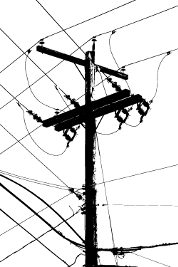Bushfire tech tested
 Researchers are working on a range of new bushfire-prevention technologies.
Researchers are working on a range of new bushfire-prevention technologies.
In the wake of the devastating Black Saturday bushfires of 2009, researchers from two Victorian universities are testing devices to avert disasters caused by fallen powerlines.
The technology, backed by substantial support from power corporations and the Victorian government, could become important tools for bushfire prevention.
Dr Douglas Gomes of Victoria University is developing an innovative device capable of detecting a break in power lines and de-energising them before they come into contact with the ground.
“Our devices are deployed to the network and listen to each other to detect a conductor breakage,” Dr Gomes says.
The royal commission's inquiry into the Black Saturday fires underscored the critical need for such advancements.
Fifteen years later, the dedication to preventing similar catastrophes remains unwavering.
Gomes' technology, which is still undergoing rigorous testing with the anticipation of readiness within the next three years, has already shown promise.
“We simulated a real conductor breakage and we could clearly see that our device could detect that conductor breakage in less than a second,” Dr Gomes says.
The ARC Early Career Industry Fellowship recognised Dr. Gomes' innovative work, granting him $464,044 in 2023 to advance his research in collaboration with Powercor.
The project not only aims to improve detection and location of power line breakages but also to integrate renewable sources into regional grids, thus enhancing overall grid reliability and safety.
Parallel to Dr Gomes' efforts, RMIT University has developed an early fault detection (EFD) system, designed to predict faults in power lines before they occur.
Lead researcher Professor Alan Wong described the system as being a “smoke alarm for the power network”, capable of detecting issues like broken conductor strands and vegetation contact with powerlines.
The system's accuracy and preventive capability have already made a significant impact, identifying a failing conductor on a property in Victoria's Porcupine Ridge.
The Victorian government and power companies have pledged over $2 million since 2017 in support of these initiatives.







 Print
Print